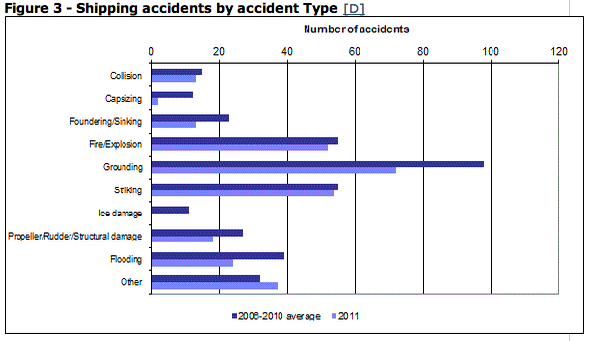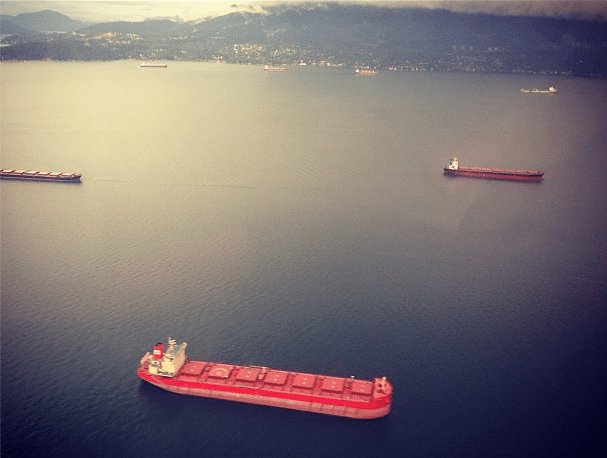Two separate incidents involving container ships off the coast of British Columbia have local First Nations questioning the prudence of transporting tar sands crude in the region’s hazardous waterways. The incidents, occurring within less than 48 hours of each other, lend new support to those who oppose the Enbridge Northern Gateway Pipeline that would bring over 200 oil-bearing supertankers through the area each year.
On Wednesday, November 21, the Hanjin Geneva, a 279-metre long cargo vessel, ran aground in the Prince Rupert Harbour after changing course to avoid a small fishing boat.
Yesterday the Tern Arrow, a deep-sea container ship, suffered a power failure in Gitga’at territorial waters in the Great Bear Rainforest.
“The ship lost power and drifted for three hours in Laredo Sound,” said Arnold Clifton, Chief Councillor of the Gitga’at First Nation. “This is the same place that a ship hit Wilson Rock in 1980. These are the same coastal waters that Enbridge is proposing to bring more than 225 oil supertankers through every year. How many close calls will we have then, and how will our coastal communities survive?”
Clifton’s remark echoes the concern that, should Enbridge bring supertanker traffic to the rugged coast, the issue of an oil spill is not if but when.
“These incidents show that an oil spill is just waiting to happen if the Enbridge pipeline and oil tankers project is ever approved. These were close calls involving container ships, but what if they had been oil supertankers carrying two million barrels of crude bitumen?” Clifton asked.
According to the Transportation Safety Board (TSB), the three most common accident types among Canadian marine vessels include running aground, striking another object and fire/explosion. After fishing vessels, barges and ore-bulk-oil carriers (known as OBO vessels) are the most likely to be involved in accidents.


The TSB is currently investigating the Hanjin Geneva accident and has yet to announce their intention to investigate the Tern Arrow incident.
Subscribe to our newsletter
Stay up to date with DeSmog news and alerts







